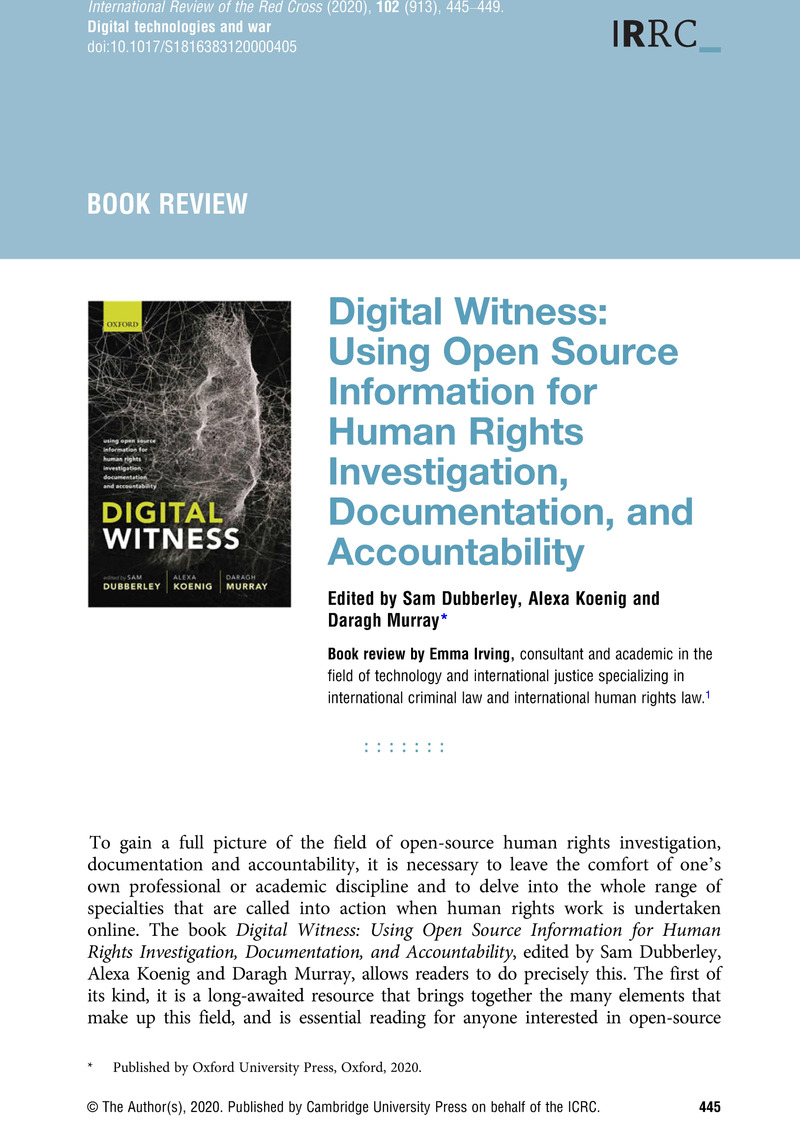No CrossRef data available.
Published online by Cambridge University Press: 18 December 2020

Published by Oxford University Press, Oxford, 2020.
Dr Emma Irving has held the position of Assistant Professor of Public International Law at the Grotius Centre for International Legal Studies at Leiden Law School, and has degrees from the Universities of Amsterdam (PhD), Leiden (LLM) and Cambridge (MA).
2 Digital Witness, Part I, Chaps 1–5.
3 Ibid., Part II, Chaps 6–10.
4 Ibid., Part III, Chaps 11–13.
5 Ibid., Part IV, Chaps 14, 15.
6 Meyers, Paul, “How to Conduct Discovery Using Open Source Methods”, in Digital Witness, pp. 109–111Google Scholar.
7 Christopher Koettl, Daragh Murray and Sam Dubberley, “Open Source Investigation for Human Rights Reporting: A Brief History”, in Digital Witness, pp. 12–32.
8 Alexa Koenig, “Open Source Evidence and Human Rights Cases: A Modern Social History”, in Digital Witness, pp. 32–48.
9 Ella McPherson, Isabel Guenette and Matt Mahmoudi, “Open Source Investigations and the Technology Driven Knowledge Controversy in Human Rights Fact Finding”, in Digital Witness, pp. 68–87.
10 Micah Farfour, “The Role and Use of Satellite Imagery for Human Rights Investigations”, in Digital Witness, pp. 228–249.
11 Sam Dubberley, Alexa Koenig and Daragh Murray, “Introduction: The Emergence of Digital Witnesses”, in Digital Witness, p. 3.
12 Fred Abrahams and Daragh Murray, “Open Source Information: Part of the Puzzle”, in Digital Witness, pp. 317–331.
13 Alexa Koenig and Lindsay Freeman, “Open Source Investigations for Legal Accountability: Challenges and Best Practices”, in Digital Witness, pp. 331–323.